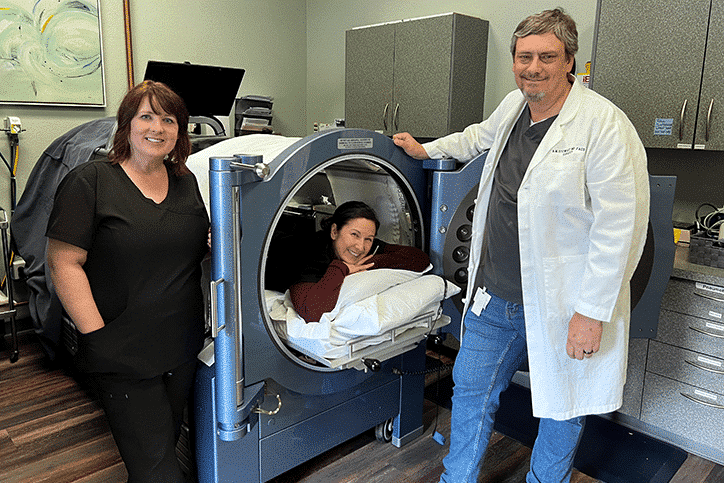Living with a chronic illness like Type 2 diabetes can be overwhelming. With daily medication regimens, strict dietary restrictions, and constant monitoring of blood sugar levels, it's easy to feel like you're just existing rather than truly living. However, managing this disease doesn't have to be a burden or a hindrance to your life.
In fact, by taking a holistic approach to your diabetes care, you can not only thrive with this condition but also improve your overall health and well-being. In this article, we'll explore the various aspects of a holistic approach to managing Type 2 diabetes and how incorporating mind-body-spirit practices can lead to better physical and emotional outcomes for those with this disease.
What is a Holistic Approach to Diabetes Care?
A holistic approach to diabetes care is comprehensive, considering the individual as a whole - encompassing their physical, mental, emotional, and spiritual well-being. This approach acknowledges that managing a chronic condition like Type 2 diabetes extends beyond mere medication adherence and dietary restrictions.
It also entails addressing various factors influencing well-being, including stress management techniques, sleep hygiene practices, and overall lifestyle modifications. By focusing on these interconnected aspects, individuals can cultivate a more balanced and sustainable approach to diabetes management, enhancing their overall quality of life. With ozempic Canadian pharmacy options, you can get the necessary medication support to complement your holistic care plan.
The Mind-Body-Spirit Connection in Diabetes Care
It's no secret that diabetes is a disease that affects both the body and the mind. The constant need for self-management can be mentally and emotionally taxing, leading to feelings of stress, anxiety, and even depression. Therefore, it's essential to address this mind-body connection in diabetes care.
Incorporating stress-reducing practices such as meditation, yoga, or deep breathing can help individuals cope with the psychological burden of living with diabetes. These practices improve mental and emotional well-being and positively impact physical health by lowering blood pressure, reducing inflammation, and improving insulin sensitivity.
Furthermore, embracing a spirit of self-compassion and mindfulness can profoundly influence one's emotional resilience. Nurturing a positive relationship with oneself can diminish the feelings of guilt or shame that are sometimes associated with managing a chronic illness. By engaging in consistent mindfulness exercises, individuals with Type 2 diabetes can develop a greater awareness of their body's needs and learn to make more intentional choices that support their health and quality of life.
The Role of Nutrition and Physical Activity
Nutrition and physical activity are vital components of any diabetes care plan. However, a holistic approach considers not only the quantity and quality of food but also one's relationship with food and movement. Aim for a well-balanced diet that includes nutrient-dense whole foods while limiting processed and sugary items. Additionally, pay attention to your body's hunger and satiety cues rather than relying solely on strict meal plans or calorie counting.
Regular physical activity is crucial in controlling blood sugar levels and managing diabetes-related complications. However, instead of viewing exercise as a chore or a means to an end, embrace enjoyable activities that bring joy and fulfillment. This positive mindset can lead to more consistent and sustainable physical activity habits.
Building a Support Network
Living with diabetes can often lead individuals to feel isolated or misunderstood, mainly when surrounded by those who don't share the same condition. This sense of isolation can be challenging to navigate. Therefore, it becomes increasingly important to establish a robust support network comprising understanding and empathetic individuals who comprehend the complexities of managing Type 2 diabetes.
This network can encompass immediate family members and close friends and extend to healthcare professionals and participation in online communities dedicated to diabetes care. By cultivating such a diverse support system, individuals can benefit from ongoing encouragement, enhanced accountability, and a profound sense of belonging, which are vital elements that contribute to their well-being on their diabetes management journey.
The Benefits of a Holistic Approach to Diabetes Care
By incorporating mind-body-spirit practices, focusing on nutrition and physical activity, and building a solid support network, individuals with Type 2 diabetes can experience various benefits. These include improved blood sugar control, enhanced mental and emotional well-being, reduced stress levels, increased energy and vitality, and improved quality of life.
Moreover, taking a holistic approach to diabetes care can also help prevent or delay the onset of potential complications associated with this disease, such as heart disease, nerve damage, and vision problems. By addressing all aspects of well-being, individuals can not only thrive with Type 2 diabetes but also improve their overall health and longevity.
Conclusion
Embarking on a journey to manage Type 2 diabetes requires a comprehensive approach that transcends traditional medical treatments. Combining medication, holistic care, and self-management strategies formulates a tapestry of support that empowers individuals to lead healthier and more fulfilling lives. This integrated pathway redefines the narrative of diabetes care, positioning the individual not as a passive recipient but as an active participant in their health story.



